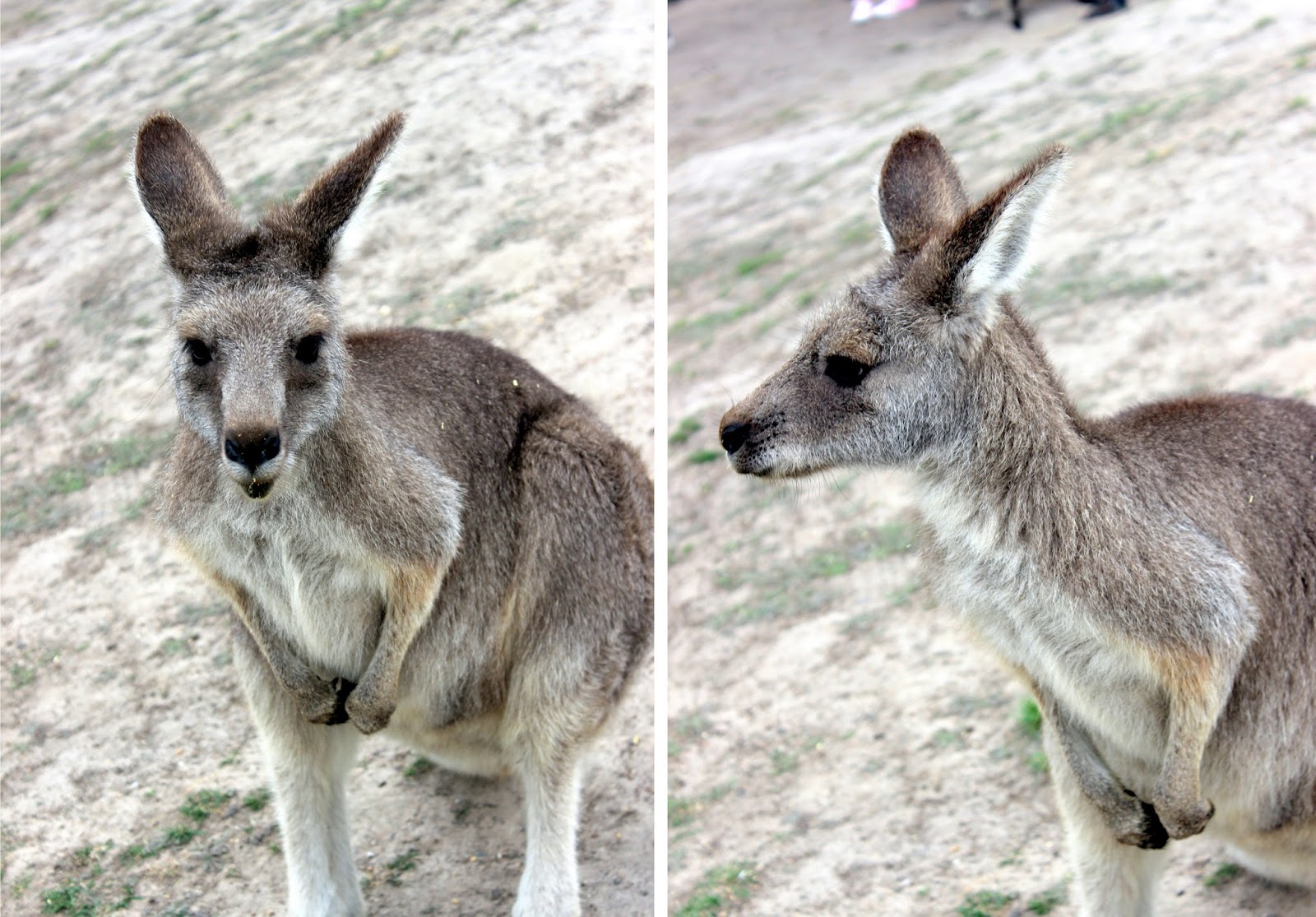"The kangaroo is an unofficial symbol of Australia [...] 'It' is important to both Australian culture and the national image, and consequently there are numerous popular culture references."
We had the pleasure to meet those beautiful animals. After spotting them first in the Woodland historic park where they are living in freedom and are obviously quite hard to capture, we met more of those lovely creatures during our Philipp Island tour. As you can probably guess - that was where I could take 'better' pictures of them.. After a long talk to their owner he was able to convince me of that they are living under the best conditions with enough space to jump around and to 'feel free'. I am still believing in that every animal has the right to live in freedom, in it's natural environment where it belongs to what is the reason for why I enjoyed spotting the wild Kangaroos way more than the caged ones.
'The Kangaroo moves by hopping on its powerful hind legs. It uses its thick long tail to balance its body while hopping. A kangaroo can hop at up to 60kmh (40mph). It can also leap over obstacles up to 3m (10ft) high. Because of the unusual shape of its legs and its bulky tail a kangaroo can't walk or move backwards very easily. Kangaroos are found in Australia, Tasmania, and New Guinea.
They are grazing animals that eat grass, young shoots and leaves of heath plants and grass trees. Kangaroos need very little water to survive and are capable of going for months without drinking at all.
The kangaroo usually rests in the shade during the day and comes out to eat in the late afternoon and night when its much cooler. It eats mostly grass. It needs very little water to survive. It can survive without drinking for months.'
Wir haben unsere offensichtliche Chance hier in Australien ergriffen und uns diese majestaetischen Tiere naeher angeschaut. Nach einer ersten Begegnung im Woodland Historic Park trafen wir sie erneut waehrend unser Philipp Island Tour. Wie nicht anderes erwartet konnte ich sie bei letzterem natuerlich einfacher und schroff gesagt 'besser' fotografisch einfangen. Ihr Besitzer konnte mich nach einem laengerem Gespraech davon ueberzeugen, dass sie unter besten Konditionen leben, genug Auslauf haben und sich bestenfalls 'frei' fuehlen sollen, warum sind sie dann nicht schlicht und einfach frei ? Ich persoenlich bin nach wie vor davon ueberzeugt dass jedes Lebewesen das uneingeschraenkte Recht auf ein Leben in Freiheit verdient hat, weshalb jene erwaehnte Erfahrung die Tiere in 'natura' zu sichten fuer mich einen groesseren Wert hat als sie als ein Teil des viel zu verbreiteten Massentourismus zu betaetcheln.


No comments:
Post a Comment